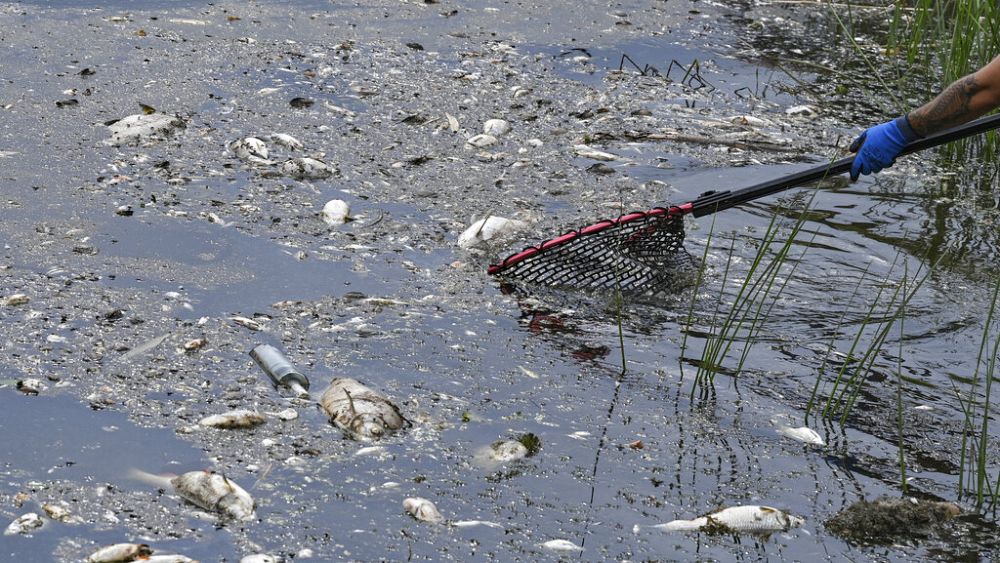Speculation is growing over the cause of an “environmental disaster” in Germany and Poland, following a mass fish die-off in the river Oder.
Thousands of lifeless fish began washing up on the banks of the river Oder, running along the borders of Germany and Poland, at the end of July.
Since then, officials have tried to determine the cause of the mass die-off, which they say will take years to recover from as the river is damaged so badly.
Laboratory tests into the source of the disaster have not detected mercury, Poland’s environment minister said Saturday.
Authorities believe the fish were likely poisoned.
Polish Prime Minister Mateusz Morawiecki said Friday that “huge amounts of chemical waste” were probably dumped into his country’s second-longest river.
He vowed to do everything possible to limit the environmental devastation, with Poland’s interior minister later offering a reward of 1 million zlotys ($200,000) to anyone with information on who was responsible for polluting the river.
Anna Moskwa, the minister of climate and environment, said analyses of river samples taken in both Poland and Germany revealed elevated salt levels.
Comprehensive toxicology studies are still underway in Poland, she said.
Writing on Twitter, Moskwa said test results transmitted from Germany had so far not shown a high presence of mercury.
The death of the fish is “atypical,” said Axel Vogel, Minister of the Environment for the German state of Brandenburg, estimating that “tons” of fish have probably already perished.
“The extent of the fish die-off is shocking. This is a blow to the Oder as a waterway of great ecological value, from which it will presumably not recover for a long time,” he said.
Fish die-offs are often caused by the distortion of oxygen levels when the water level is too low. This is the case in Germany and Poland, amid the historic drought gripping Europe.
“But we have noticed an increase in the oxygen level for several days, which indicates that a foreign substance has been introduced and caused all this,” said Vogel.
Michel Tautenhahn, deputy head of the German Oder Valley National Park, said that more than just fish have been caught up in the disaster.
“I am deeply shocked,” he told reporters. “I feel like I see decades of work being ruined … Water is our life.”
Tautenhahn said that a host of other marine animals, such as mussels had also succumbed.
“Fish are] just the tip of the iceberg,” he said.
The Oder has been considered a relatively clean river for many years, supporting around 40 species of fish.
In Poland, authorities have been accused of a sluggish reaction, after reports of huge numbers of dead fish washing ashore began surfacing.
Two Polish officials were dismissed for what the country’s prime minister described as tardiness in their response.
“If I come to the conclusion that there was a serious breach of duties, further consequences will be drawn,” he said.
“For me, however, the most important thing is to deal with this ecological disaster as soon as possible, because nature is our common heritage. It is a national good,” Morawiecki said.





















Discussion about this post